27 Apr 5 Common Life Insurance Mistakes & How to Avoid Them
We recently compiled a list of the top five common life insurance mistakes, and thought it was worth sharing:
1. Wrong Amount
Life Insurance protects our families from many risks – from providing liquidity to pay for existing debts, final expenses, and Mortgage Balances to providing an investable lump sum to replace lost income. Replacing lost income is, in many cases, the largest component of the plan. For example, let’s assume you have final expenses of $20,000, existing debts of $10,000, and a mortgage balance of $470,000 – that adds up to $500,000. Now let’s look at how much investable assets your surviving spouse needs in order to pay property taxes, buy groceries, cover auto expenses, etc. Assuming your take-home pay is $80,000, we need to provide for roughly $40,000 a year in income after the mortgage expense and the family expenses solely attributable to you in order to keep your survivors in the lifestyle that they are accustomed. Assuming a 4% net return on the investments, you would need to have $1,000,000 in the investment account to achieve your goal. If you think 3% is more reasonable, then the lump sum goes up to $1,333,333 to achieve the same income. Add a 2% inflation factor, and you’re up to $1,936,000! Industry experts recommend anywhere from 7 to 20 times income. It’s better to err on the side of more coverage. The gentlemen who recruited me to the life insurance business over 30 years ago would say almost daily that “no one ever complained that their Death Benefit check was too much.” Every situation is different, which is why you need a Financial Services Professional to help sort everything out to make sure your specific needs are met.
2. Wrong Type
Life Insurance comes in many flavors. The most basic form of Life Insurance is Term Insurance. These policies will usually have a Guarantee Level Premium Period of 10, 15, or 20 years followed by annually-increasing, ridiculously expensive Premiums. These are temporary policies for temporary needs. Most have conversion features which can be exercised during the Guarantee Period up to maximum ages, which make them perfect policies for clients with young families and budget constraints. There are Guaranteed Universal Life (UL) Policies, which are more like Term for Life policies, in that most don’t accumulate Cash Values very well. Next up are the Current Assumption UL, Fixed Indexed UL, Variable UL, and Whole Life. These policies are all lumped together under the label of “Permanent” Insurance, which is a bit of a misnomer. All of them can be permanent as long as the Premiums are paid on time and no withdrawals or loans are made against the policy. If the assumptions used to determine the funding level are too aggressive, an interest rate decrease, an increase in mortality costs, or a dividend decrease can mean increased Premiums later.
3. Borrowing from Your Policy Cash Values Without an Exit Strategy
You own a Life Insurance Policy that builds Cash Value and something comes up – a college tuition bill, a down payment on a home, or that new Bass boat you’ve had your eye on. You have saved a significant amount of Cash Value in your policy. You decide to borrow some of those Cash Values to make your purchase. Please be aware that this transaction requires you to monitor your policy to make certain that the Loan doesn’t degrade policy performance. Make loan repayments if you can along with any loan interest to make sure your policy continues to maturity. If the policy lapses due to a relatively large loan amount, you face the problem addressed in the next section.
4. Cashing in a Policy that Has a Gain
Once again, you have a Policy which has built up value over the years and now, for whatever reason, the need you had when you purchased the policy no longer exists. The total value of the policy, for tax purposes, includes the Surrender Value you receive plus any loans you took out during the life of the policy and any loan interest paid from policy values. If that total value exceeds the total Premiums (basis) you paid into the policy, then the Insurance Company is obligated to report to the IRS the total amount of the gain you received, which is taxed as ordinary income. The same is true if the policy loans accrue out of control until there is virtually no value left. If the policy is ignored and left to lapse, then there is a high likelihood that there will be a taxable gain. Once again, the services of a Financial Services Professional can be of tremendous benefit. He or she can calculate the potential impact of the gain on your current tax situation and compare that with options available to either repay a portion of the loans and loan interest or rescue that policy by affecting a tax-free exchange of values, known as a 1035 Exchange, with an Insurance Company equipped to assume existing Loans in order to reduce the client’s costs.
5. Failing to Review Your Coverage Regularly to Ensure it Meets Your Needs
People change, circumstances change, and life happens. Regular reviews keep your planning on course. Updating beneficiary designations to make sure proceeds are paid to your current spouse could prevent a nasty court battle. Check policy performance to make sure your current results are tracking with the illustration you were shown at initial purchase. Life Insurance policies have, over the last 30 years, effectively transferred the Investment Risk to the client. Whether the policy values are invested in the Insurance Company’s General Account (Universal Life), linked to a stock Index (Indexed Universal Life), or allocated to one or more Separate Accounts (Variable Universal Life, regular reviews reduce the chances that you will have an unpleasant surprise. Sometimes needs change, necessitating an increase or decrease in coverage. Health changes should also be reviewed. Some carriers will allow for a better Underwriting Class if you quit smoking. If there is a significant downturn in your health, you may be able to reduce or eliminate Premium Payments without affecting your coverage. Reviewing your plan at least annually makes good sense unless you have a complicated plan utilizing Variable Life Insurance or are financing your Premium through an independent lender, in which case quarterly reviews are certainly appropriate.
Life Insurance today is a much different animal than it was 30 years ago. There are many living benefits and tax advantages that should be considered in any comprehensive financial plan. Many policies now have Accelerated Death Benefit features that allow for an Advance on the Death Benefit if you are diagnosed with a terminal illness and have policy Riders available that will advance a portion of the Death Benefit if you are unable to perform two out of six Activities of Daily Living (much like a Long Term Care Policy). Another advantage is that, in many states, assets held in a Life Insurance policy are protected from the claims of Creditors. Cash Values inside a Life Insurance policy grow tax free and can be distributed tax-free using a combination of withdrawals and loans as long as the policy is not a Modified Endowment Contract (MEC).
Life Insurance should be thought of as a living, breathing part of your family and cared for as such. It is a complicated financial planning tool, but is worth the effort due to the leverage created by paying a relatively small Premium against the potentially large Tax-Free Death Benefit.
About Quality Quote Insurance Solutions
Quality Quote Insurance Solutions, LLC is a consulting brokerage firm. We leverage our decades of combined experience and tenure in the industry to venture into entrepreneurship to provide innovative services and solutions for affluent families and their advisors. We, as Co-Founders, along with our new partners and seasoned team of professionals, look forward to providing services and solutions for you in the future. Through a partnership with a large, respected national brokerage organization that affiliates with all the best companies and carriers in the marketplace, QQIS has the right relationships in place to return optimal business opportunities to advisor clients. We have developed an experienced team with strong values, and our goal is to provide superior service and solutions for our advisor clientele. Please call 1-844-TRY-QQIS (844-879-7747) or visit www.qualityquotesolutions.com for more information or to get a quote.




